Description
ABSTRACT
Tax Deductibility and Exemption of Corporate Donations in Nigeria
Olagoke Odubunmi*
Charitable corporate donations (subsumed sometimes under the wider concept of Corporate Social Responsibility) have often been seen as a way of giving back to the society within which a corporate entity operates in order to engender goodwill and promote a positive corporate image of the company among the citizenry. Behind this facade of promoting good relations however, there may be an ulterior motive of exploiting the tax advantage such adventure confers on the corporate donor. This article seeks to examine the concept of corporate donations from a Taxman’s perspective, evaluating the circumstances and extent to which same may be tax deductible or totally exempted from corporate tax under Nigerian laws.
Keywords: Charitable Donations, Tax Deductibility, Corporate Social Responsibility.
INTRODUCTION
Under the Nigerian Companies and Allied Matters Act, Cap. C20 Laws of the Federation of Nigeria 2004, a registered company is statutorily required to perform some duties which include payment of tax, rates and levies.1 These duties do not include building of schools, health centres, roads, water supply etc. to its immediate environment;2 this is simply because businesses primarily exist to make profit. The profit motive has often been perceived as representing a lack of concern for all other objectives of a business organisation. In this regard, businesses are realising that in order to stay profitable in a rapidly changing environment, they would have to become socially responsible. Therefore, the belief that beyond making profit for the shareholders, business enterprises should also serve the interests of all other stakeholders has culminated into the concept of Corporate Social Responsibility (CSR).
However, a major incentive/motive which perhaps often drive corporate entities into charitable causes or CSR as the case may be, is the tax advantage such charitable donations confers on the donor company. In this regard, such donations for charitable causes whether in kind or cash is monetised and becomes deductible to a maximum of 10% or 15% of the profit of the company for that year of assessment from the income tax liability of such company, and the ultimate burden passed on to the government under sections 25 and 25A of the Companies Incomes Tax Act, Cap. C21, Laws of the Federation of Nigeria, 2004 (CITA).
CONCEPTUAL CLARIFICATION: TAX WAIVER, TAX EXEMPTION, ALLOWABLE DEDUCTIONS
Tax waivers and tax exemptions on the one hand, and allowable deduction of corporate donations on the other are distinct and distinguishable concepts in their import, meaning and application. These three concepts have often been used interchangeably in contexts which suggest that they mean the same thing. It is therefore imperative to highlight briefly the contextual application of each in order to show their distinctions.
* LL.M, BL, ACTI. Manager, Tax Services, Maples & Temples, Lagos.
- Ayorinde B., ‘The Challenges of Corporate Social Irresponsibility in the Niger Delta Regions of Nigeria – The Imperative of Legislative Reform’ (Being paper presented at the 5th International Conference on International Environmental Law held between 8-9 December, 2007 at New Delhi, India) 887 – 889 at p. 888.
- The Environment is made up of the earth and its inhabitant. Broadly defined, it encompasses the animals, plants, water, the invisibles and the improvements thereon including the buildings, factories, roads etc.

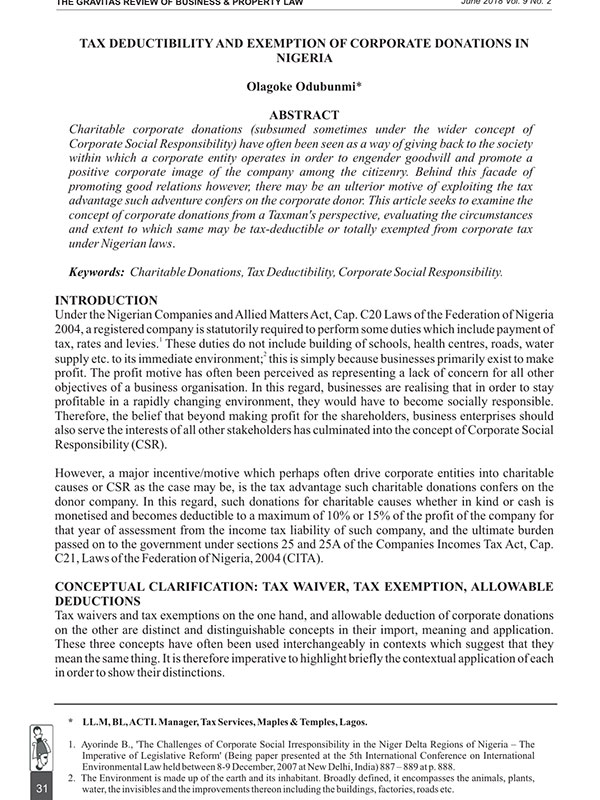
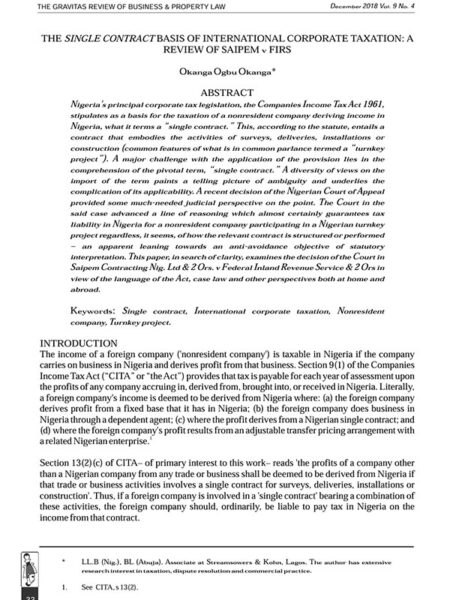
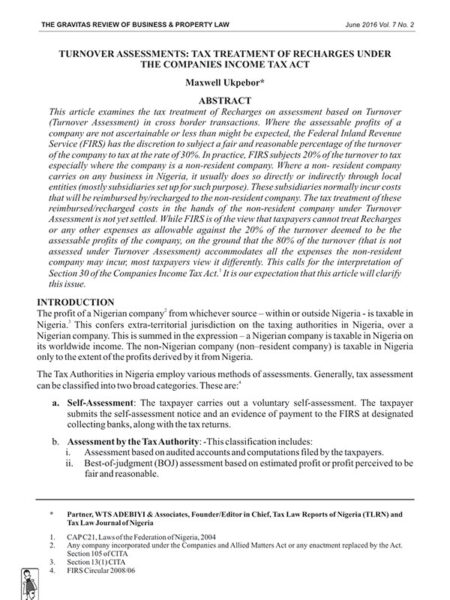
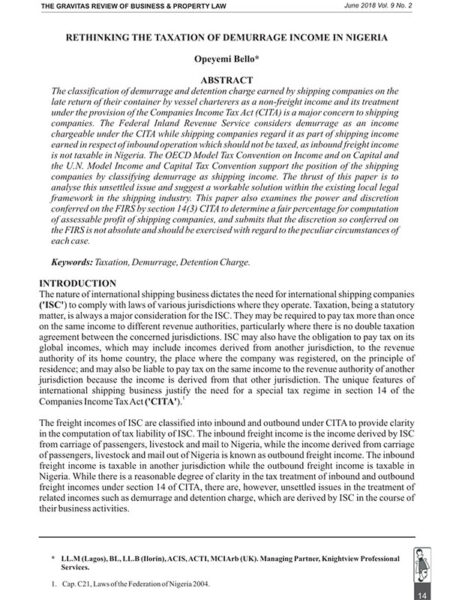
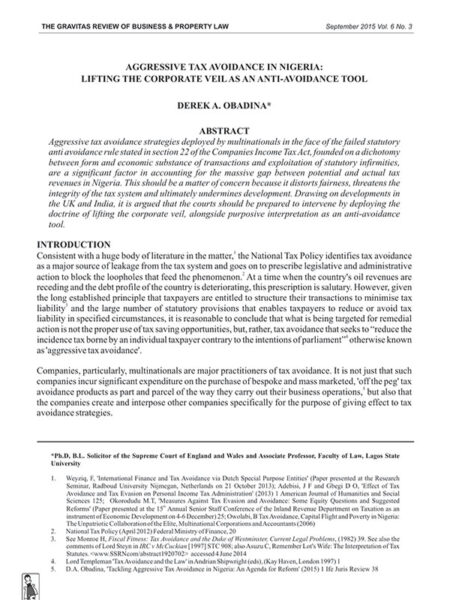


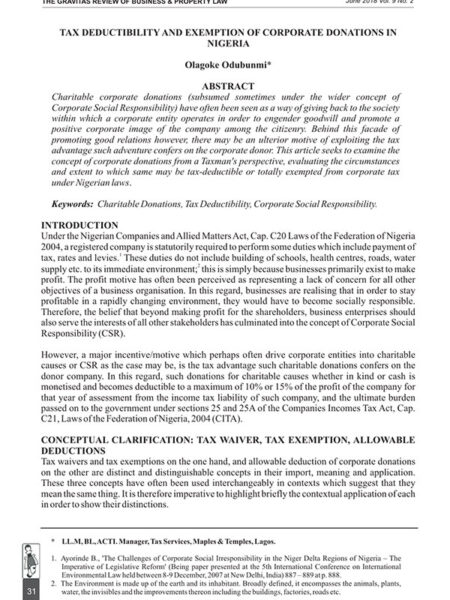
Reviews
There are no reviews yet.